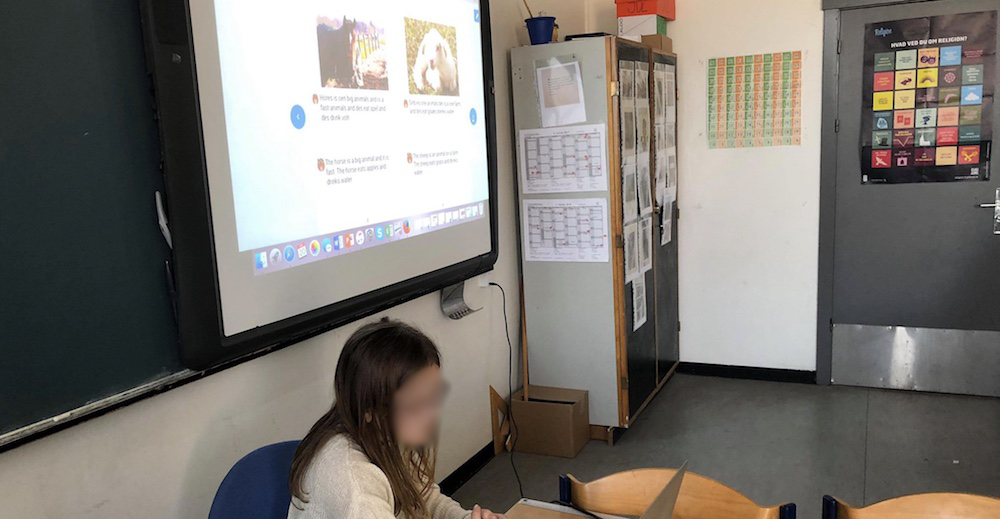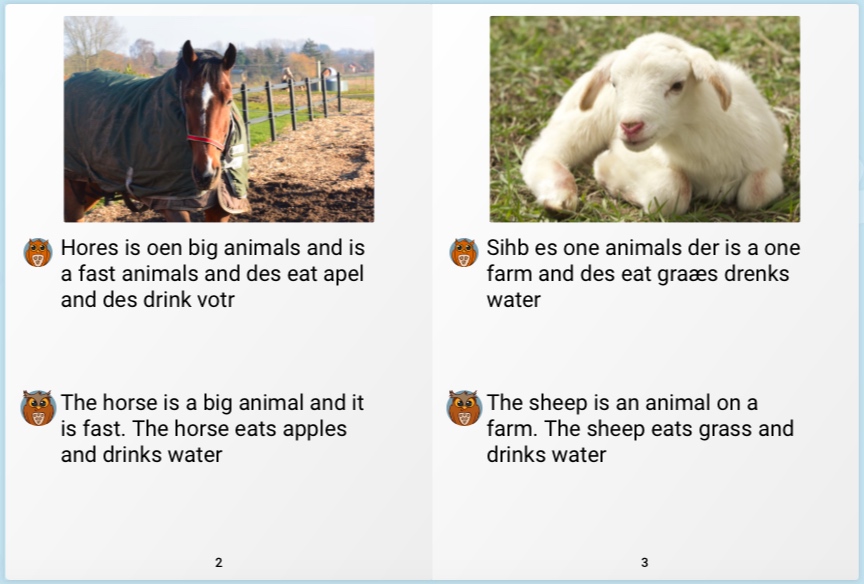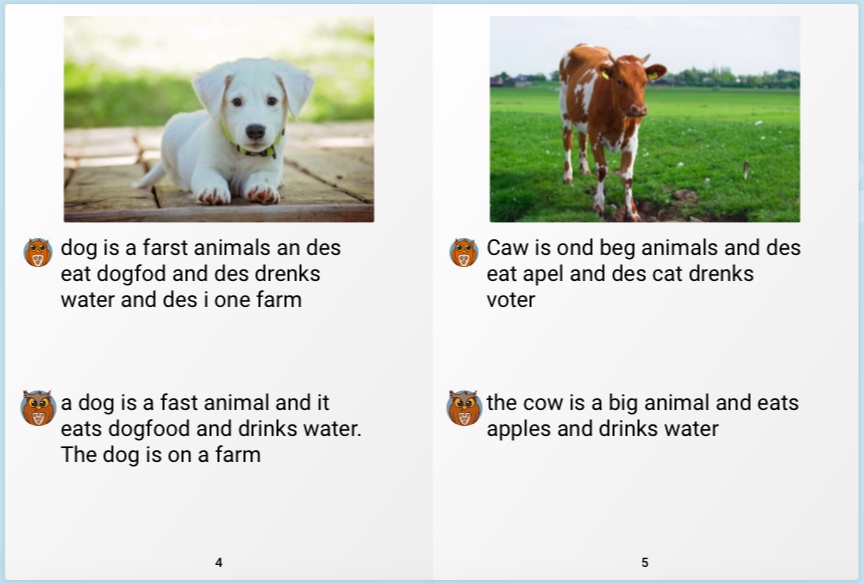Guest blog post by Frederikke Pape Larsen, EFL Teacher and student at Aalborg University, Copenhagen, Denmark
Abstract
This project was a study in the use of digital learning tools in primary school education. It took place in a primary school in Denmark, more specifically in teaching English in the 3rd grade. English is the first foreign language that the students will be introduced to during their schooling in Denmark. The class contained 25 students with diverse learning needs. Therefore, it was imperative to use differentiated instruction. Throughout the project, I reflected on this inquiry question: How might a digital learning tool support a productive approach to foreign language learning for students? From a general perspective, this meant that the project examined how students could benefit from a digital learning tool while analyzing the students’ experiences. The digital learning tool used in this project was the web-based app, WriteReader.

Teaching Framework and Tasks
The idea behind WriteReader is that it is a tool to support and develop the students’ current written language. The project examined how the productive approach to foreign language development can support student vocabulary. Therefore, the project looked at the essential factors that prove to motivate for the students and benefit from teaching with WriteReader. We explored, ’What are the students experiencing when they are productive, and what can the learning tool provide?’ The digital learning tool moves away from the structural perspective, and instead looks at the progression that the students go through when interacting with the tool.
Throughout the project, the students worked with the overall topic of “Animals.” In this particular class, the academic level varied a lot and therefore the students did not have the same starting point for learning. Some were very skilled individuals, others very uncertain, and some had not yet found their way into foreign language learning. Throughout the course of the WriteReader project, the students saw how they could become authors at their own level. The students could experiment with the written language despite their academic level. In this way, WriteReader gives great options for differentiated instruction. Students can make the books as “their own,” since they can create multimedia books through images, audio, and text based on their own interests and everyday lives. WriteReader thus differs from many other tools as it has a proven effect on language and literacy learning, with greater focus on the creative learning process rather than training-based.

Professional Learning
One of the factors that proved to be essential for the professional learning process and access to teaching was the motivational factor. The pupils were at different levels in English and I experienced a great need for differentiated instruction. It was therefore essential for students to be productive in foreign language learning. Students were still on their way from one language to another and these students needed to work with the language in their own way. This meant that the students were directed to their zone of proximal development, wherever they were at in their learning.
It was necessary to take into account that students today have great competencies in the use of IT and media and therefore, technology should no longer be seen simply as a tool for learning but also as part of the learning environment. Therefore, one cannot overlook the aspect of how teaching and learning must be contemporary for the students. Students are used to being producers, contributing something, and sharing information with each other. The core of this project was understanding how to utilize the student skills mentioned above and how the teacher applies this to her teaching practice.
Throughout the process, I experienced the importance of allowing students to participate, co-determinate, be creative, and use critical thinking. The result of the analyzed data has shown that motivation, co-determination and a zone of proximal development has a major impact on the students’ learning outcomes. If the digital learning material is to support students’ foreign language learning, it is important that students produce something themselves and that the materials are based on their academic abilities. When the students are working by themselves with the learning material and they are allowed to be productive, their motivation and dedication about the learning of new words and activities increases; this is the essence of moving from one language to another.
Student Learning
WriteReader gave new opportunities for student participation and new ways to plan and deliver my instruction. By being productive, the students created their own understandings and abilities to handle the digital learning material; thus developing a dialogue and investigative approach to exploring a foreign language. This must be considered as a good step towards making English a fluent language rather than a foreign language. By giving the students the opportunity to write these books themselves at their own level, the language learning process became something that the students could practice with much greater enthusiasm than what was previously experienced in the classroom.
For students, it is extremely important to support motivation and make sure it stays at the forefront throughout the entire course. By the time the students understood and mastered WriteReader, their self-motivation had increased. This resulted in engaged, productive students who went to their English class with self-confidence and success, despite their academic level.

Conclusion
Throughout the project, it became clear how a substantial learning resource like WriteReader can affect writing progress and access to foreign language teaching. It gives the students an understanding of how to handle learning complexity, use IT, be creative, and think critically; and not least of all, to communicate effectively, and work collaboratively and independently. WriteReader enables you to work with highly academic content through a recognizable and relational approach where the students get a sense of being able to master anything, no matter their level.
My learning was that it’s critical to base your teaching on a creative approach, where you can produce languages and experiences. Thus, it does not have to be a literal approach to teaching. As with this age group, it was about promoting maximum participation in a common space that was designed for creativity, empathy, and acquisition; thereby trying to refrain from focusing exclusively on writing and reading. WriteReader enables students to do precisely this.
